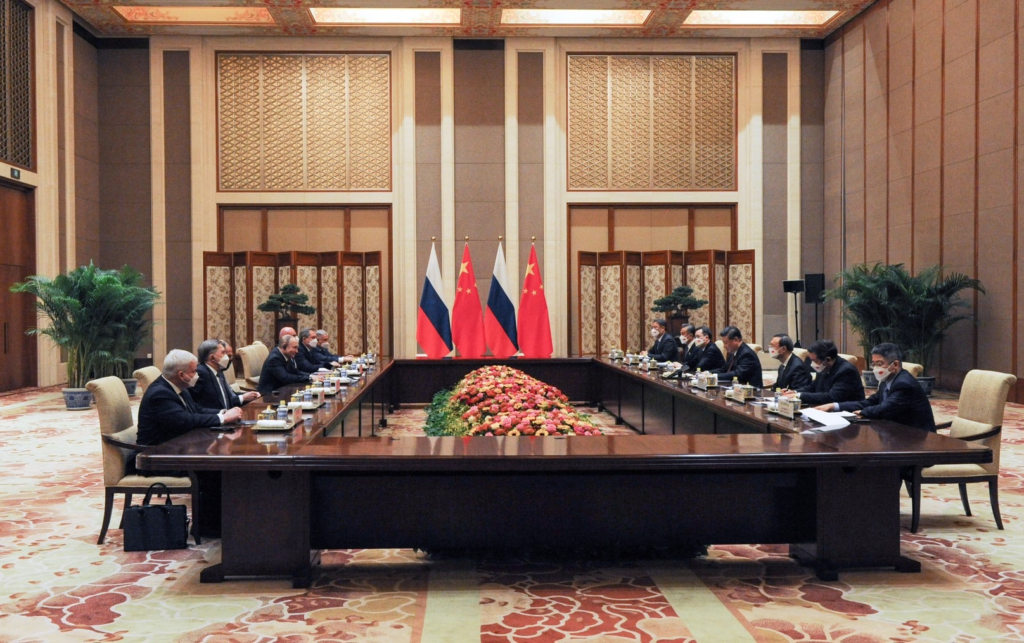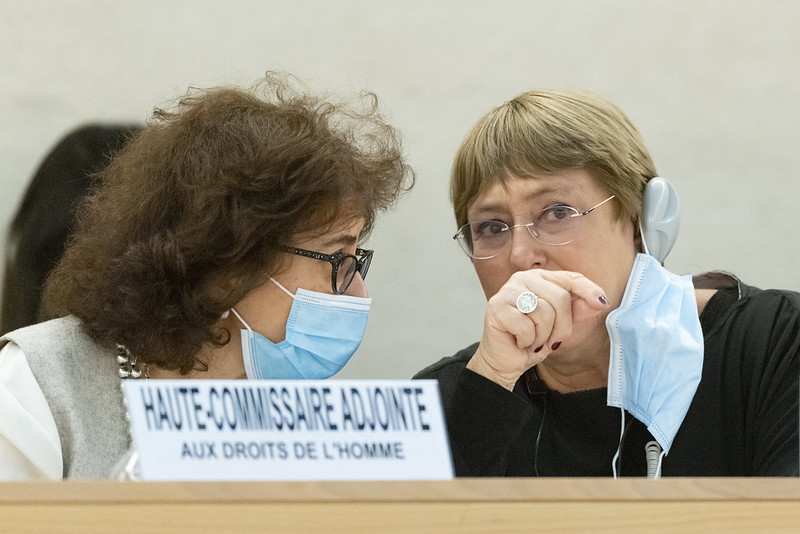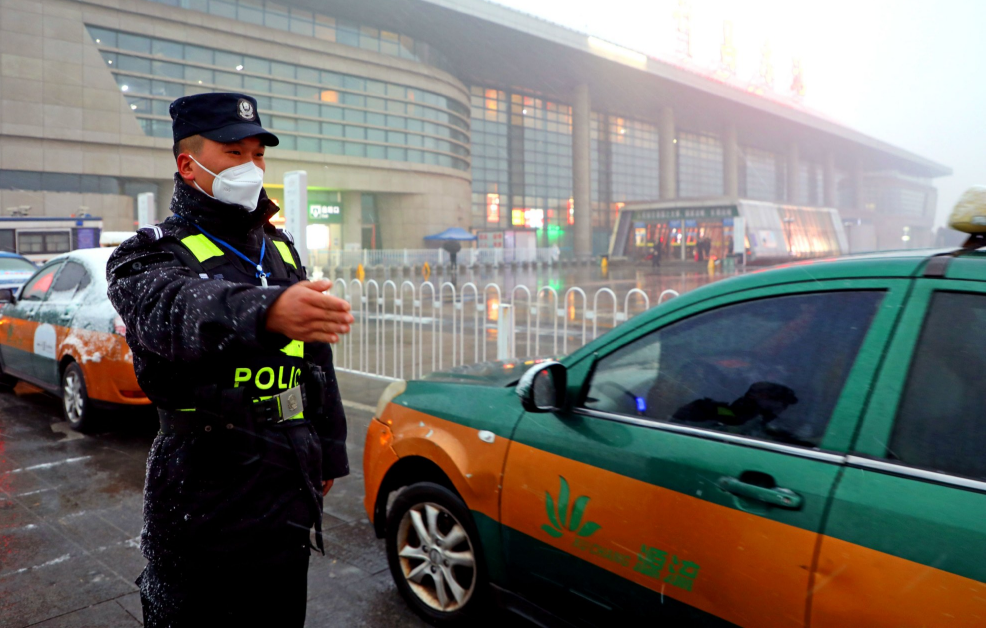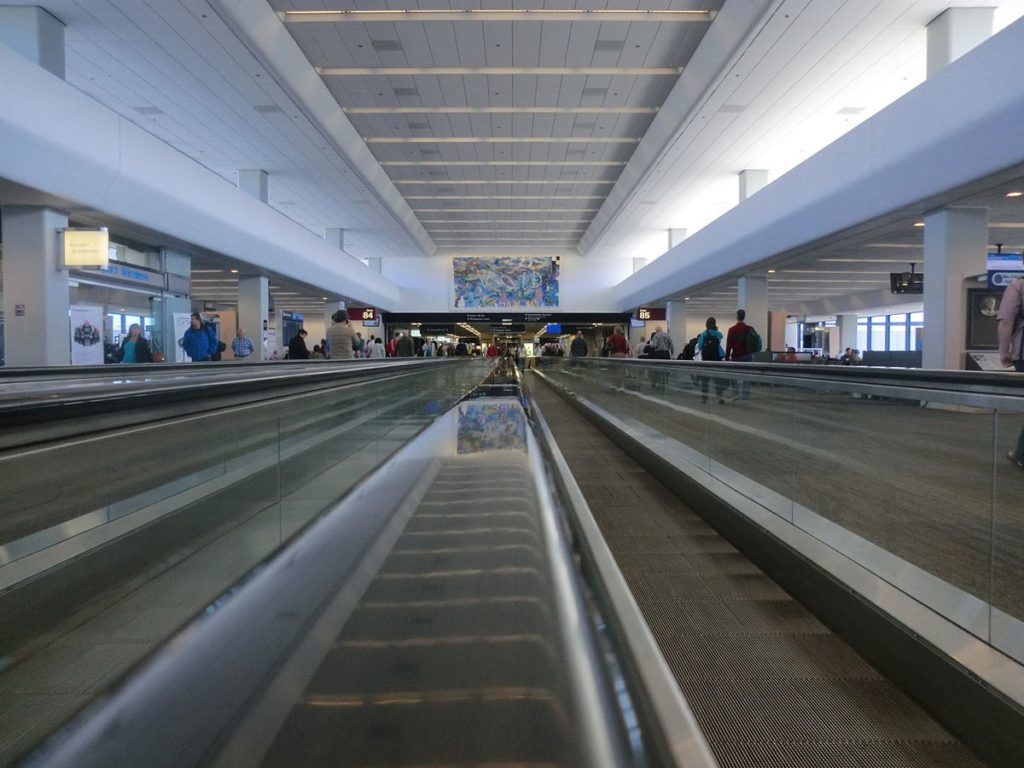EVENTS
Ukraine Invaded: Beijing Backs Russia

On the eve of the Winter Olympics in Beijing, Russian President Vladimir Putin visited Beijing for talks with Chinese president Xi Jinping on the two countries’ strategic relationship. On February 4, the opening day of the games, the two sides released a joint statement that declared that there are “no limits” to their cooperation and that their strategic relationship was superior to any Cold War alliance.
The Winter Olympics closing ceremony took place on February 20. On February 24, Russia attacked Ukraine, a country not mentioned in the China-Russia joint statement. Coming so soon after the conclusion of the Games, Russia’s invasion fueled speculation in the United States and Europe that Putin advised Xi about his plans to attack Russia’s neighbor, and that Xi asked him to delay the invasion until after the closing ceremony of the Games.
China has strenuously denied that Putin informed Xi of his plans to attack Ukraine, a country with which China has built a strong investment and trade relationship. It characterizes this account as “fake news.” China’s words and actions have, however, strongly suggested the country supports and sympathizes with the Russian position, which blames the United States for provoking the war. While repeating China’s “principled position” on sovereignty and territorial integrity, state media, quoting officials, has stressed that Russia’s legitimate “security concerns” must be respected.
Chinese officials have made clear that they will not honor western sanctions against Russia, and that trade and investment flows will continue. It has purchased a large shipment of Russian wheat. China has reportedly offered to help Russia get around the sanctions by letting the country use its banks and payment systems. It has provided a platform for some of Russia’s most outlandish statements justifying its actions and state media has even purchased Facebook ads parroting Russia’s position.

Chinese media have been instructed not to use the word “invasion” to describe Russian actions and not to print articles on how the West, notably the United States, have resisted Russia’s actions. Discussion of casualties and Russian strikes against civilian targets are off limits. Ukraine’s consulate in Shanghai has complained to China’s public security bodies that harassment of Ukrainian citizens is taking place.
It is at the United Nations that China’s support for Russia is most evident. Beijing abstained on two resolutions (one in the Security Council, one in the General Assembly) decrying Russia’s invasion, and most significantly, voted against a resolution at the Geneva-based Human Rights Council to hold an urgent debate on the situation in Ukraine. According to a Chinese official who Dui Hua approached for an explanation of its vote at the HRC, “China does not believe that Russia has committed crimes against humanity in Ukraine and does not agree with the position of most Western countries that China and Russia have bad human rights records.”

However, as the supposedly quick “special operation” drags on into its third week, China may be having second thoughts. Oversea branches of Chinese banks have stopped financing Russian oil companies. A Rosaviatsiya official openly complained that China has refused to supply aircraft parts to Russia’s passenger airlines. That official was subsequently fired reportedly for making the public statements. China fears that its own economy may suffer collateral damage from sanctions placed on Russia. On March 8, US Commerce Secretary Gina Raimondo threatened to cut off China’s access to US chip making equipment and technology if the country violates the ban on Russian access to semiconductors.
Visit to Xinjiang
The war in Ukraine was not the only China-related news that made headlines at the 49th session of the HRC. In her speech to the council on March 8, Human Rights High Commissioner Michelle Bachelet announced that her long awaited trip to China, the first by a human rights commissioner to the country in 17 years, will take place this year, perhaps as early as May. Her visit to China will be preceded by the visit of a technical team in April.

For more than three years, Bachelet has sought to visit China and especially Xinjiang where reports of human rights violations against the Uyghurs have been widely publicized. It is not clear what the parameters of her visit will be. Beijing insists that her visit be an “exchange” and not an investigation. On various occasions, the office of the high commissioner has said that it wants “unfettered access,” “meaningful access” and, most recently, “credible access.” As things stand, it is not known if the camps where Uyghurs are held will be visited nor is it known whether, and under what conditions, alleged victims of human rights abuses will be interviewed.
In December, Bachelet threatened to release a detailed report on the situation in Xinjiang, and she has repeatedly been pressed to do so by the United States and other countries. On the eve of her March 8 speech, 192 human rights organizations released a letter urging Bachelet to release the report without further delay. Bachelet made no mention of the report in her speech, and it is unlikely that she will authorize release of the report prior to her visit to China later this year.
PUBLICATIONS ROUND UP
Featured: Human Rights Journal: People’s Parties & “Picking Quarrels,” Part I: Mysterious Party Founder Charged amid Pandemic (March 8, 2022) and Part II: From ESS to Pocket Crime (March 10, 2022)

Dissent has fast become a victim of the coronavirus as China tightens controls on acceptable forms of speech during the pandemic. Citizen journalists who give first-hand accounts that contradict the official version of events are at risk of arrest for “picking quarrels and provoking trouble,” with a notable example being citizen-journalist Zhang Zhan (张展).
The crime of “picking quarrels and provoking trouble” also targets those who take to the streets during lockdowns. China’s persistence with the zero-COVID policy, often imposing total lockdowns alongside mandatory testing programs in major cities or across entire neighborhoods, has sparked protests over overpriced groceries and poor-quality food supplies. As recently as January 2022, COVID-related mass incidents broke out in Shenzhen, Tianjin, and Xi’an.
Read more of Part I here.
Read Part II here.
See Also: Human Rights Journal, February 15, 2022: Decoding State Security Trials, Part II: “Other” Trials & Other Provinces

In China, trials for crimes of endangering state security (ESS) are capable of generating intense, international media scrutiny while also being woefully opaque. In the face of severe degradations in judicial transparency, increasingly scant data—the latest from 2020—suggests that ESS trials have surged in recent years.
In Part I, Dui Hua looked at available statistics for ESS trials, focusing on Tibet—where ESS cases rose sharply in 2020—and Xinjiang, which accounted for the largest percentage of ESS trials of any Chinese region through the mid-2010s. This entry considers the rates of additional trials categorized as “other” in China Statistical Yearbooks (中国统计年鉴): endangering national defense, dereliction of military duty, and criminal offenses prior to 1997. Attention is paid to ESS trials in Han-majority provinces and Guangdong.
JOHN KAMM REMEMBERS
John Kamm Remembers is a feature that explores Kamm’s human rights advocacy prior to and since Dui Hua’s establishment in 1999.
Two Flights to Freedom, Part II

Read Part I
Ms. Jiang Jie Flees China, Arrives in US
While their loved ones are suffering in prison, families of political detainees suffer on the outside, often denied visitation rights and telephone calls, not knowing if their spouses are still alive. Sometimes, spouses are urged to divorce their partners so that their children can lead a “normal life,” free of stigma.
Jiang Jie, the wife of Chen Taihe, was interrogated by the police attached to the domestic security division (guo bao) of the Guilin public security bureau, and their apartment was searched on two occasions. The police told Jiang Jie, four months pregnant with the couple’s second child, that she was violating the one-child-per -family policy in force at the time. They tried to convince her to abort the baby. Jiang Jie refused.
Chen Taihe had a US visa, a J2, in his passport; this entitled Jiang Jie to a dependent visa in her passport. Despite limited English and not having friends or family in the United States, Jiang Jie decided to leave Guilin and fly to San Francisco. She purchased two separate tickets, one for her, one for her son, as close as possible to departure. She took these steps to throw the police off her scent. On August 3, she flew to Guangzhou, on the pretext of looking for a lawyer, and, on August 4, together with her son, she boarded a flight to Seoul. From there she flew to San Francisco, arriving on August 4, 2015.
Upon deplaning at the cavernous arrival hall at SFO, Jiang Jie and her son faced a stern Customs officer. He told her that her visa entitled her to enter the United States with her husband, not by herself. They were taken to a room where she had to deal with an unfriendly interpreter over the telephone. This person tried to convince her to return to China. Jiang Jie stood her ground and refused to be sent back.

Finally she was moved to another room where she was dealt with by a friendly immigration officer. He eventually allowed her to enter the United States after she told him where she planned to stay. It had been nearly 24 hours since she arrived at the airport.
Jiang Jie and son Zuoan went to Fremont where she rented a place to stay. After her husband was released from the detention center, he called her on her mobile. She was overjoyed to hear his voice. At the end of August, at the suggestion of an official at the American embassy in Beijing, she made contact with Dui Hua. We began to assist her. At the end of September, she contacted the legal aid center at the University of California Berkeley. They proved to be very helpful to her and her husband in starting a new life in the United States.
Trips to Guangzhou and Beijing
After his release from detention to residential surveillance, Chen Taihe was summoned every two weeks for interrogation by guo bao. These sessions took place either at the guo bao office or in a hotel. These were extremely stressful events during which Chen was threatened with rearrest.
The final straw was when the case of arrested lawyer Pu Zhiqiang was brought up in an interrogation session. Pu had been detained in May 2014 for creating a disturbance and inciting ethnic hatred by posting seven Weibo messages between 2011 and 2014. At the time of Chen Taihe’s interrogations in Guilin, Pu had yet to be brought to trial. One of his interrogators pointed out to Chen that Pu had only posted seven Weibo messages whereas Chen had posted thousands. (Pu was subsequently tried and given a three-year suspended sentence. He was stripped of his license to practice law.)

At around the same time, lawyer Bao Longjun’s son was arrested trying to leave the country for Myanmar and Hong Kong bookseller Gui Minhai was kidnapped in Thailand and taken back to China.
Fearing his rearrest was imminent and that he would die if he were put back in detention, Chen decided to leave China. He would travel to Guangzhou, site of a large US consulate. Not knowing that one cannot apply for political asylum at a consulate, Chen went to the consulate where he sought entry. He was turned away, and he made his way back to Guilin.
Chen then sought permission from guo bao to travel to Beijing. Permission was granted. The first trip was used to tie up loose ends of cases he was working on. The second trip, undertaken in February 2015, was to apply for a new visa to enter the United States. The visa was granted on February 24, 2015 whereupon Chen briefed American officers on what he had endured.

Airport Scenes: Guilin and San Francisco
All was ready. Chen Taihe went to Guilin Liangjiang International Airport to board a plane to Hong Kong where he was to board a plane to San Francisco. After checking in with his luggage on March 1, 2015, he approached immigration. They cleared him to leave, but after entering the departure area officers of wu jing, the people’s armed police deployed at the airport, stopped him and refused to let him board the flight. Chen called guo bao who intervened on his behalf. After half an hour wu jing relented and Chen was allowed to board the flight.
It was a nervous 320-mile flight to Hong Kong on a Chinese carrier through China airspace. After arrival at Hong Kong international airport, he boarded a flight to San Francisco.
Unlike his treatment at Guilin Airport and Jiang Jie’s treatment at SFO, Chen entered the United States without incident. At the arrival hall he was met by Jiang Jie, his oldest son, and me. Doubtless exhausted, he nevertheless was upbeat and full of energy. He and his small family boarded a taxi for their small apartment in Fremont.
A New Life
After he arrived in the United States, Chen Taihe applied for political asylum through his Berkley-based legal aid team. Judge Shackley and I wrote letters supporting his application, which was eventually granted. It allowed him to not only stay in the United States but to seek employment as well.
Chen wanted to practice law but he needed the support of the Guilin Bar Association, issue a certificate of good standing which they refused to provide. Fortunately, the California Bar Association can grant permission to take the bar examination if the applicant is supported by letters from practicing lawyers. With the of his legal aid team, Chen Taihe gathered five support letters and sent them along. The California Bar Association accepted his application to take the bar examination.

Chen Taihe decided to put off taking the examination to make some money to support his family. He joined California’s largest landscaping firm working in the red-hot San Francisco Bay Area property market as a landscaping designer and project manager. Always good with his hands and with a keen eye for detail, Chen was an immediate success, his efforts praised by colleagues and customers alike. He eventually set up his own company.
Today, Chen Taihe, Jiang Jie and their three children (a daughter, Stephanie, was born in September 2021) are living the American dream. A successful businessman, Chen owns his own firm and his own home. He continues to fight for democracy and human rights in China by posting on social media, delivering a lecture at Hastings Law School where he was granted a position of visiting professor, and asking me to intervene on behalf of imprisoned lawyers and members of their families in China.
Subscribe if you want to receive Dui Hua publications by email.
